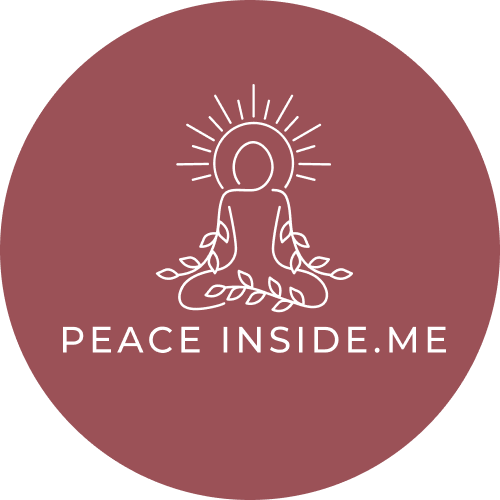peaceinside.me
Journaling 101: How To Start, Benefits, Techniques, and Prompts
| Journaling Prompts For Healing | Journaling For Mental Health | Benefits Of Journaling Daily | Journaling Prompts For Mental Health
Journaling has been a popular practice since the Victorian Era. The times change. But the people’s need to write down their thoughts and feeling hasn’t. This is why journaling remains an efficient way to clear your head, face your emotions, express gratitude, etc.
Now that we all spend so much time writing on our phones, it might be weird to pick up a notebook and a pen and start to journal. But even so, journaling is certainly worth practicing.
In this article, we will tell you about the benefits of journaling, how it helps with mindfulness, what are some popular journaling techniques and prompts, and most importantly, how to get started with journaling.
What Is Journaling?
Journaling is the practice of writing down your thoughts and feelings. Many people do journaling as a regular activity and enjoy all the benefits of this practice without giving much thought to it.
Many others, however, are yet to learn about journaling. Here are some of the main benefits of journaling.
Now that we all spend so much time writing on our phones, it might be weird to pick up a notebook and a pen and start to journal. But even so, journaling is certainly worth practicing.
In this article, we will tell you about the benefits of journaling, how it helps with mindfulness, what are some popular journaling techniques and prompts, and most importantly, how to get started with journaling.
What Is Journaling?
Journaling is the practice of writing down your thoughts and feelings. Many people do journaling as a regular activity and enjoy all the benefits of this practice without giving much thought to it.
Many others, however, are yet to learn about journaling. Here are some of the main benefits of journaling.
- Journaling helps reduce stress and anxiety.
- It helps you track your goals and progress.
- Writing down your negative thoughts and feelings helps you get rid of them.
- Journaling clears your mind when you are overwhelmed.
- Journaling helps with self-confidence and self-acceptance.
- It enhances your creativity and gives inspiration.

5 Journaling Techniques To Try
There are many journaling techniques you can use. Here are five techniques you can try out if you are new to journaling and are not sure yet which form of this practice suits you best.
1. Freewriting
If you don’t know how you feel about journaling, freewriting might be the best technique to start with. Get a paper and pen, set a timer, and simply start writing down what you are thinking and feeling at the moment. The key is to keep writing no matter what until your time is off.
Even if it is your shopping list that comes to your mind at the moment, write it down. Freewriting is all about accepting yourself and your thoughts. With time, you will feel that freewriting helps you get rid of anxiety and fear.
2. Listing Favorites
Not everyone may enjoy freewriting. In such cases, creating lists is a great technique to use to start practicing journaling.
The idea behind this journaling technique is to create lists of various things – your favorite books, movies, foods, items of clothing, affirmations, things you are grateful for, etc. Writing down lists is easy but it triggers your attention and helps you maintain your journaling schedule even when you are not in the mood for writing.
Additionally, writing down lists gives you topic ideas that you can then reflect on.
3. Morning Pages
If you like journaling first thing in the morning, then this Morning pages practice is the most suitable journaling technique for you.
For the Morning pages practice, you wake up, open your journal, and start writing. You need to write three pages, putting down your thoughts and emotions without trying to control them.
This technique enhances your creativity, improves your morning routine, reduces anxiety, and ultimately, helps you start your day with a clear mind.
There are many journaling techniques you can use. Here are five techniques you can try out if you are new to journaling and are not sure yet which form of this practice suits you best.
1. Freewriting
If you don’t know how you feel about journaling, freewriting might be the best technique to start with. Get a paper and pen, set a timer, and simply start writing down what you are thinking and feeling at the moment. The key is to keep writing no matter what until your time is off.
Even if it is your shopping list that comes to your mind at the moment, write it down. Freewriting is all about accepting yourself and your thoughts. With time, you will feel that freewriting helps you get rid of anxiety and fear.
2. Listing Favorites
Not everyone may enjoy freewriting. In such cases, creating lists is a great technique to use to start practicing journaling.
The idea behind this journaling technique is to create lists of various things – your favorite books, movies, foods, items of clothing, affirmations, things you are grateful for, etc. Writing down lists is easy but it triggers your attention and helps you maintain your journaling schedule even when you are not in the mood for writing.
Additionally, writing down lists gives you topic ideas that you can then reflect on.
3. Morning Pages
If you like journaling first thing in the morning, then this Morning pages practice is the most suitable journaling technique for you.
For the Morning pages practice, you wake up, open your journal, and start writing. You need to write three pages, putting down your thoughts and emotions without trying to control them.
This technique enhances your creativity, improves your morning routine, reduces anxiety, and ultimately, helps you start your day with a clear mind.

4. Planning the Day
As we have noted earlier in this article, journaling regularly helps you with accomplishing your goals and tracking your progress. If this is what you expect journaling to help you with, then one of the best journaling practices for you would be planning your day.
You can create a to-do list for each day. But this technique would be more efficient if you also wrote about some goals you will be working toward on a specific day. One of the main benefits of this journaling technique is that it teaches you how to set priorities.
This technique is also very helpful when you are overwhelmed and stressed by the many things you have to deal with.
5. Reflective Journaling
Reflective journaling may not be the best journaling technique for beginners as they are yet to learn how to write down their thoughts without any fear and anxiety.
Practice reflective journaling on a daily basis. Make your reflection journal the place where your write down the things that have happened to you throughout the day and analyze them.
Do this regularly so that you are able to look back, gain insights, and see how you have grown as a person, how your habits have improved, etc.
As we have noted earlier in this article, journaling regularly helps you with accomplishing your goals and tracking your progress. If this is what you expect journaling to help you with, then one of the best journaling practices for you would be planning your day.
You can create a to-do list for each day. But this technique would be more efficient if you also wrote about some goals you will be working toward on a specific day. One of the main benefits of this journaling technique is that it teaches you how to set priorities.
This technique is also very helpful when you are overwhelmed and stressed by the many things you have to deal with.
5. Reflective Journaling
Reflective journaling may not be the best journaling technique for beginners as they are yet to learn how to write down their thoughts without any fear and anxiety.
Practice reflective journaling on a daily basis. Make your reflection journal the place where your write down the things that have happened to you throughout the day and analyze them.
Do this regularly so that you are able to look back, gain insights, and see how you have grown as a person, how your habits have improved, etc.

Journaling Prompts For Beginners
Journaling prompts are ideas that serve as first lines on a blank page. They give you a clear direction about what to write.
Here are some journaling prompts for beginners.
Journaling prompts are ideas that serve as first lines on a blank page. They give you a clear direction about what to write.
Here are some journaling prompts for beginners.
- What are your top 3 priorities?
- How would you describe yourself?
- What is your favorite childhood memory?
- What would you tell your past/future self?
- A list of 10 self-care ideas.
- A list of 5 things you love about yourself.
- Where do you see yourself in 5 years?

How To Get Started With Journaling?
Now that you have learned the basics of journaling, you may still wonder how to get started with journaling and how to make it a part of your routine. Here are a few steps to help you get started.
1. Find a journaling technique that you like. As noted above, there are multiple journaling techniques you can try. Get started with the one that you like more and that you think will work best for you.
2. Don’t be judgemental. If you are a beginner at journaling, you may be too critical of the way you write and the things you write about too. But journaling is all about accepting your thoughts and feelings the way they are, understanding them, and letting go of them if needed. So, be easy on yourself when you journal.
3. Have a routine. For journaling to work, you need to do it regularly. Journaling comes easy when you are in the mood for writing. However, it is highly efficient to journal when you don’t feel like doing it due to stress or anxiety. We recommend you journal every other day or four times a week if you are a beginner.
4. Use journal prompts. Prompts are extremely helpful for beginners. Even if you are not a beginner and journal regularly, sometimes you may run out of ideas and simply not know what to write about. This is when prompts come to help.
Now that you have learned the basics of journaling, you may still wonder how to get started with journaling and how to make it a part of your routine. Here are a few steps to help you get started.
1. Find a journaling technique that you like. As noted above, there are multiple journaling techniques you can try. Get started with the one that you like more and that you think will work best for you.
2. Don’t be judgemental. If you are a beginner at journaling, you may be too critical of the way you write and the things you write about too. But journaling is all about accepting your thoughts and feelings the way they are, understanding them, and letting go of them if needed. So, be easy on yourself when you journal.
3. Have a routine. For journaling to work, you need to do it regularly. Journaling comes easy when you are in the mood for writing. However, it is highly efficient to journal when you don’t feel like doing it due to stress or anxiety. We recommend you journal every other day or four times a week if you are a beginner.
4. Use journal prompts. Prompts are extremely helpful for beginners. Even if you are not a beginner and journal regularly, sometimes you may run out of ideas and simply not know what to write about. This is when prompts come to help.
If you need a little help to create a new mindfulness habit, we designed a 7-day journaling challenge for self-discovery. During this challenge, you will receive an email from us with a new prompt and idea behind it for seven days in a raw. On top of that you will have seven mindfulness activities to complete as a part of the challenge. Our participants say this is a simple and therapeutical experience that helps create a deeper connection with yourself.
Another way to enter the world of journaling is to try a guided journaling session. Here, at peaceinside.me, we offer guided journaling session as a part of our online retreat. This practice is a combination of journaling and meditation with a purpose to help you get back on a self-love path and cultivate inner peace.
Another way to enter the world of journaling is to try a guided journaling session. Here, at peaceinside.me, we offer guided journaling session as a part of our online retreat. This practice is a combination of journaling and meditation with a purpose to help you get back on a self-love path and cultivate inner peace.
~
See a typo or inaccuracy? Let us know so we can fix it!
Sharing is caring ❤️
~
~
~
BECOME A PEACE INSIDER
Sign up for peaceinside.me information, inspiration, and specials.



